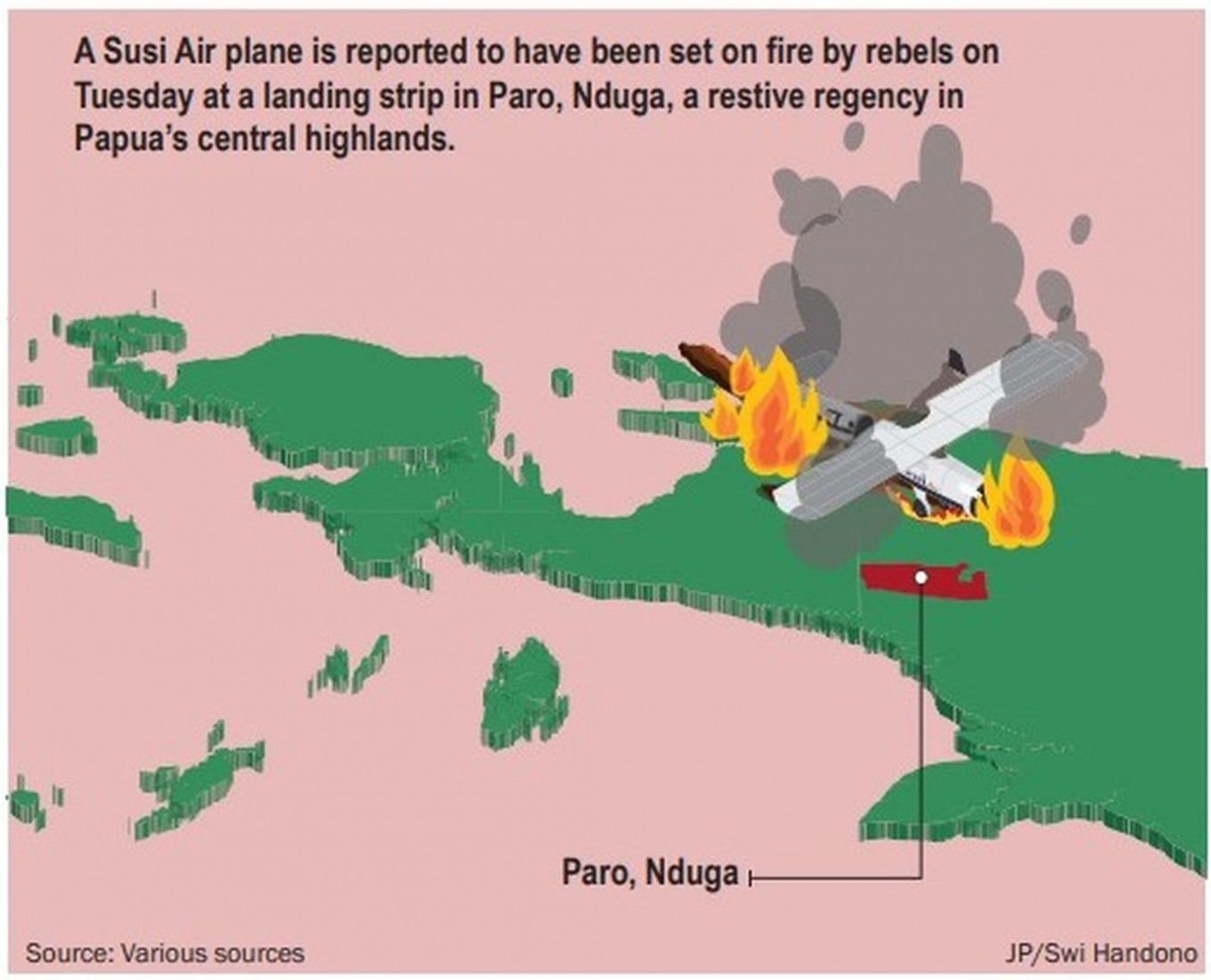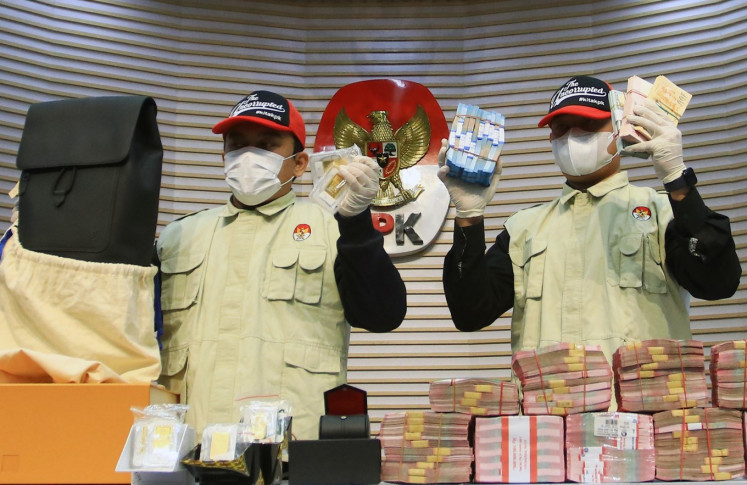Popular Reads
Top Results
Can't find what you're looking for?
View all search resultsPopular Reads
Top Results
Can't find what you're looking for?
View all search resultsNegotiation still the best policy
The government can seek assistance from credible organizations like the International Committee of the Red Cross (ICRC) to mediate a dialog with the armed group if the issue of trust is all that keeps the negotiation from positive results.
Change text size
Gift Premium Articles
to Anyone
A
fter more than three weeks, efforts to release Susi Air pilot Phillip Mark Mehrtens from members of the West Papua National Liberation Army (TPNPB), the armed wing of the Free Papua Movement (OPM), have so far borne no fruits. The faster the drama ends the better for everyone, but the fact that the negotiations with the group have hardly seen a breakthrough only shows how tough the process is.
For the government, the hostage-taking is testing its endurance in dealing with the rebels, in which any miscalculation will put the life of the New Zealand national at stake. The Indonesian Military’s (TNI) option to put any use of force on hold is therefore the best policy, regardless of chief security minister Mahfud MD’s claim that security troops have located, or perhaps encircled, the group. In fact, Wellington has asked Jakarta to refrain from violence in the operation to free its citizen.
On the other hand, the pilot’s captors have continued to offer a deal that the Indonesian government cannot afford to accept. Mahfud said the armed group had asked for weapons and ammunition in exchange for Mehrtens’ release, after previously demanding the withdrawal of TNI troops from Papua and Jakarta’s recognition of Papuan independence.
Mahfud said the government was preparing a strategy to rescue the pilot from captivity, taking into account his safety. The foreigner is reportedly in good health, according to Mahfud.
The armed rebels, led by Egianus Kogoya, have been holding Mehrtens after burning his aircraft upon landing at the airport in the remote district of Paro, Nduga regency in the newly formed province of Papua Highlands on Feb. 7. The group released the plane’s five passengers, including a baby.
Back in 1996, the group held captive 26 Indonesian and foreign researchers in Mapenduma district, also in Nduga. Some of the hostages were held for 130 days, until the government commissioned the Army’s elite unit to launch a military operation. Two Indonesian researchers were killed in the rescue mission.
Indonesia has several times resorted to a military operation to release hostages, most notably the deployment of Army’s commandos to rescue Garuda Indonesia passengers in Don Mueang Airport in Bangkok in March 1981. The Garuda plane had been hijacked by a Muslim extremist group called Komando Jihad on its way from Jakarta to Medan. All the hijackers and the pilot were killed, while all passengers left the aircraft safely.
About 30 years later, then-president Susilo Bambang Yudhoyono ordered a military operation to free 20 Indonesian nationals aboard a Sinar Kudus vessel that had been hijacked by Somalian pirates in the waters 350 miles off Oman in March 2011. A planned attack was eventually aborted after the pirates accepted a ransom and released the cargo ship.
The choice of military approach this time around does not seem to bode well for Indonesia given the rampant human rights abuses allegedly involving the military and police in Papua. Not only will a military operation prolong the cycle of violence, but also spread fear and resentment among indigenous Papuans toward the government.
The best the government can do is to entrust the negotiating team, spearheaded by acting Nduga regent Namia Gwijangge and comprising community and religious figures, in persuading the armed group to release Mehrtens alive. No other parties can understand the separatist rebels better than local people like Namia.
The government can also seek assistance from credible organizations like the International Committee of the Red Cross (ICRC) to mediate a dialog with the armed group if the issue of trust is all that keeps the negotiations from positive results. The ICRC helped facilitate the hostages’ release in Mapenduma until the rebels broke the agreement that led to the military operation.
The success of the dialog to free Mehrtens will certainly restore hopes to bring peace back to Papua.











